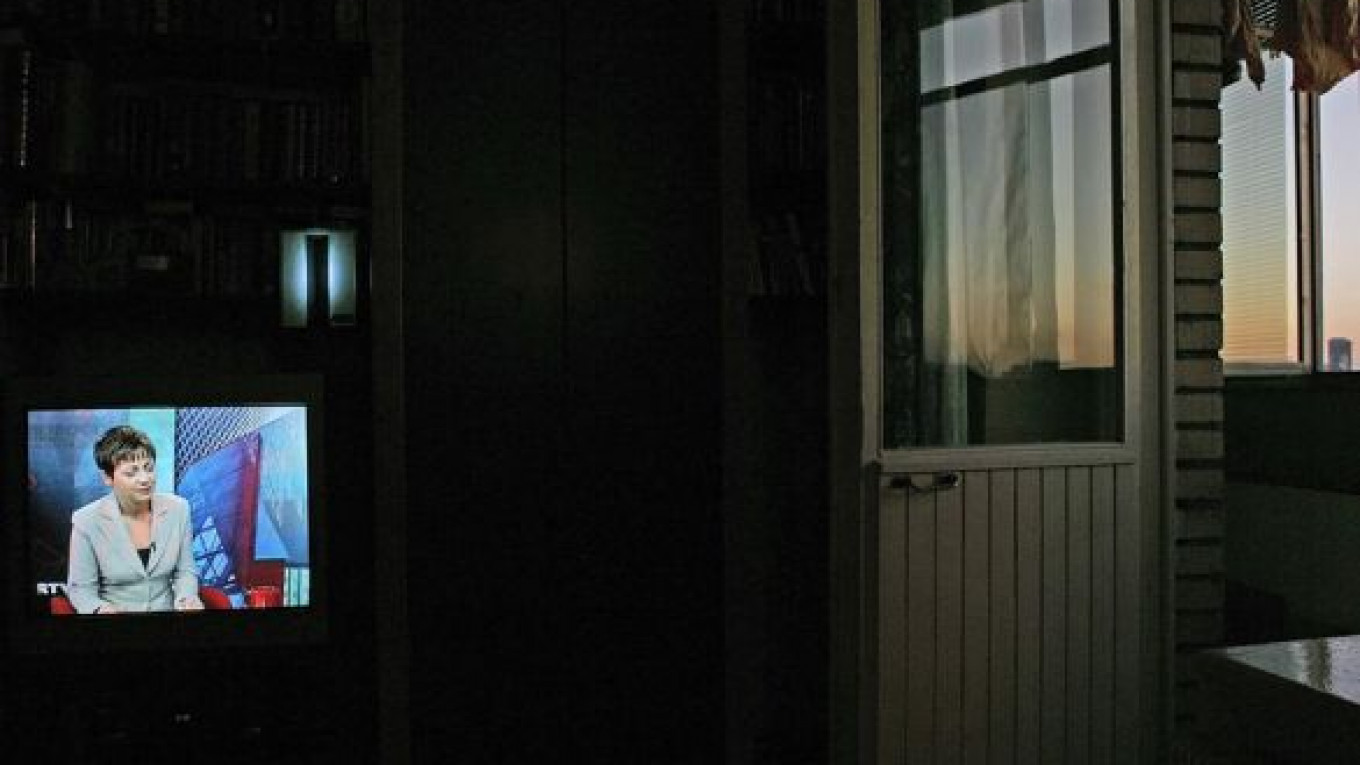Russian television has often been labeled a Kremlin propaganda tool by its critics, with the intelligence of many who take it at face value being disdained by its opponents, unlike those who rely on the internet.
But an American professor, whose book on Russian TV influence was recently translated into the country's native tongue, challenges this view of the television audience.
Ellen Mickiewicz, Professor of Political Science from Duke University conducted research involving Russian focus groups, and her results showed that Russians generally don't subscribe to any one-sided view that is often provided.
"They begin watching the news knowing that they are not getting the whole story or even a big part of it. Why? Mainly because there's only one side given on the news: So many participants in focus-group sessions saw one side and immediately thought up all the other sides they could think of," Mickiewicz said in an online interview with the Moscow Times.
She said she addressed her respondents with questions after they watched a variety of channels, including some more pro-Kremlin channels (e.g. Channel First), and some less so: "For many viewers, a story is not, as they said, "objective" unless there is more than one view in it," she said.
 Ellen Mickiewicz
Ellen Mickiewicz
Duke University
The book, titled "Television, power and public in Russia," has itself received a lot of attention across the Russian information outlets. Despite it initially being published in the United States in 2008, the book's extensive research on Russian media was welcomed by both casual readers and experts.
One of the reasons for this attention could be that Mickiewicz has already gained respect in Russian expertise circles as an author of several books on both modern Russian and Soviet television.
Tatyana Samsonova, a radio host from Ekho Moskvy (a liberal-leaning talk radio station) called the book "very tough" and recommended it to readers who wanted to explore more of what they see and know.
Mickiewicz said the majority of television viewers believed they were already aware that many stories they watched on television were influenced by various companies, government or political parties, but they were still able to "squeeze information" out of them.
"They have done it their whole lives, except for a short period," she said referring to the traditional Russian tool of "reading between the lines".
Polls conducted in Russia do support Mickiewicz's findings, showing that while television is still watched by the majority of Russian viewers, its influence seems to be declining.
The poll, conducted last year by the Synovate Comcon market research agency, showed that television was trusted by 35 percent of respondents, down from 40 percent in 2010.
While current Russian television with its quiz shows, serials and all kinds of entertainment programs is a far cry from the mostly grim Soviet TV, viewers who see it also get bored quickly, Mickiewicz said.
"The news often presents lists of numbers of rubles saved or how much oil has been found and what it is worth." In her research, viewers switched off.
"Their eyes left the screen, and others, less than a minute later, could not say what they had just seen," she said.
Some critics have recommended Mickiewicz's book for the producers of Public television, or OTR, which started to broadcast last week. The channel, which was given green light during Dmitry Medvedev's presidency, has not yet impressed some of its harshest critics, who say it does not correspond to daily events.
The channel chairman, Anatoly Lysenko, was once an icon of the liberalization of Soviet television.
While Lysenko claimed that his channel would be free from censorship, he admitted that the project did not have many resources for the future, adding that in Russia (or anywhere), making people pay for public television was next to impossible. "You would have to establish a federal service that would be comprised of police supported by helicopters," he said half jokingly in a recent interview with Kommersant.
Contact the author at a.bratersky@imedia.ru
A Message from The Moscow Times:
Dear readers,
We are facing unprecedented challenges. Russia's Prosecutor General's Office has designated The Moscow Times as an "undesirable" organization, criminalizing our work and putting our staff at risk of prosecution. This follows our earlier unjust labeling as a "foreign agent."
These actions are direct attempts to silence independent journalism in Russia. The authorities claim our work "discredits the decisions of the Russian leadership." We see things differently: we strive to provide accurate, unbiased reporting on Russia.
We, the journalists of The Moscow Times, refuse to be silenced. But to continue our work, we need your help.
Your support, no matter how small, makes a world of difference. If you can, please support us monthly starting from just $2. It's quick to set up, and every contribution makes a significant impact.
By supporting The Moscow Times, you're defending open, independent journalism in the face of repression. Thank you for standing with us.
Remind me later.






